An Interview with Jonathan Laden, Editor of Daily Science Fiction
Daily Science Fiction was founded in 2010, by Jonathan Laden and Michele Barasso. It is an unusual ezine that not only publishes its stories, largely flash fiction, online, but also emails them to its readers every weekday.
Jonathan and Michele tell us that they have run used bookstores on both coasts, and have done many unrelated things – beads, tea, business school, and nonprofit management, among others.
Jonathan is an alumnus of Clarion and his work has appeared in Writers of the Future, Electric Velocipede and many other markets.
Michele has been a King Arthur fanatic since childhood, and enjoys the works of Esther Freisner, Elizabeth Hand, and Stephanie Meyer.
I was able to corner Jonathan online just long enough to try and find out more about him and Daily Science Fiction.
What do the two of you do when you’re not running one of the new pro-pay online SF magazines?
Not running Daily Science Fiction? Between kids and the magazine, there isn’t so much time to worry about. I know that, in the Facebook age, all of the details of our lives are supposed to be paramount, but I’m hoping that running a venue that offers strong, entertaining fiction ultimately matters more.
Daily Science Fiction is an ambitious undertaking. What lead you to establish DSF?
Three parts craziness, one part hope. I was at a seminar for the day job where email was suggested as the future of magazines. While I’m not convinced that’s true in any universal sense, we do think it is one of many fragmented futures and one that we particularly enjoy.
You have staked out a different niche in the online SF market by establishing a fiction ‘newsletter’ and emailing stories each weekday, and then later publishing them on your website. It is an interesting system and it’s nice to get a story in my inbox. Why did you decide to use this method of distribution?
Honestly, there are strong magazines in this field, and there have now been very good websites for years, yours included. One way we could provide a unique value and enjoyment factor was by trying something different, something we knew we would enjoy. The email delivery model is different, in some ways we didn’t anticipate. We’ve never believed the oft-quoted adage that the Novella is the natural length for science fiction (It’s as much worst of both worlds as it is best in our personal experience), but we’ve been surprised by the strength of the resistance we get to longer stories in email. We’ll still take excellent long tales, but the bar inches higher the longer it gets. Inexorably, the medium is influencing the stories we select.
There is an ongoing discussion about the viability of online SF markets like yours and ours as profitable businesses. DSF publishes well over 20,000 words a month and pays a professional rate, making it be a costly venture. What business model do you foresee that can make DSF a self-sustaining magazine?
It’s important to note that DSF doesn’t publish more words than a monthly print magazine does. Print magazines have been, and continue to be, great values.
To your question: We’ve been heavily involved in nonprofits for years. The best nonprofits run on a business model, just with the caveat that dollar profit-maximizing isn’t the only goal. For better and for worse, we bring that sensibility to this endeavor.
Honestly, this is an industry-wide phenomenon. Short of the million-copy bestseller level, even top professional writers are making decisions that do not maximize their earning potential by continuing to write.
Have I ultimately dodged the question? Oh, dear me. Shouldn’t let that happen.
Daily SF has published a wide variety of stories. What elements draw your attention when you are reading a submission?
Like everyone else, we want to be engaged and engrossed by the story. A character we can care about usually feels most important in the longer tales. Something unique, at least a fresh take on the old tropes, more often drives the success of a flash piece.
As happens to everyone who reads thousands of stories in a short period, we start to discount that which we see repeatedly. There are lists of the most overused themes all over the place. We can’t add much to the discussion by listing our personal peeves.
We aren’t professional copyeditors by trade, so we do expect writers to have their “ands” under control, and to write very well.
Who are your favorite authors and what so you like about their work?
For short fiction, Robert Reed is one who can almost always be counted on to leave a lasting impression hours after the story is completed. For flash, Michael Swanwick brings wit and the ability to pack much more than the few words into the tale. We have many other favorites, especially among novelists.
We’ve also published many stories (and said “No thanks,” to some) from authors who have amassed truly awe-worthy bodies of work.
What sort of stories would you like to see more of in the submissions to DSF?
We’re always hungering for tightly written flash that makes us think and/or that delivers a real emotional impact.
What do you see in the future of Daily Science Fiction?
We’re building. We hope to continue to grow steadily and to share entertaining stories with people who love science fiction.
We can’t thank Jonathan enough for taking the time to talk to us about this exciting and innovative addition to the online science fiction landscape.

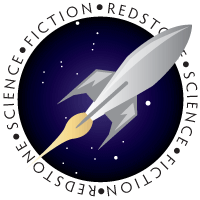
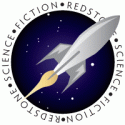



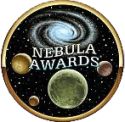

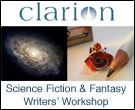


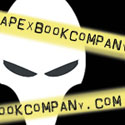
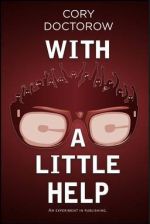
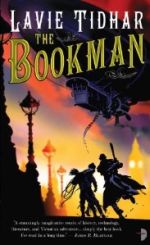
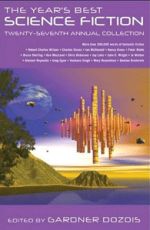


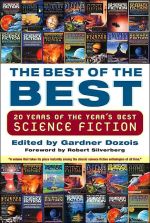
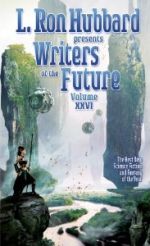

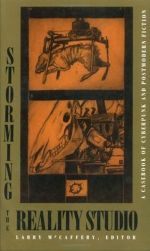



2 comments
[…] got a chance to send a few questions to the editors of one of the new digital SF markets, Daily Science Fiction. They are quite an enigma, and I am pleased to shed a little light on the people who put some flash […]
[…] An Interview with Jonathan Laden, Editor of Daily Science Fiction by Michael […]